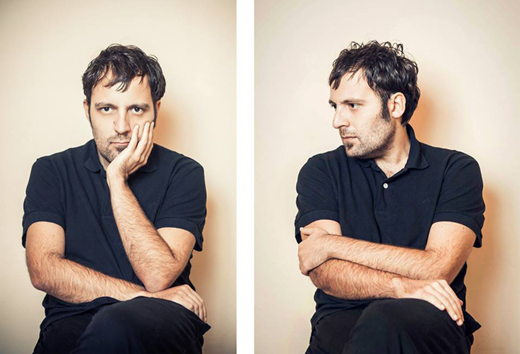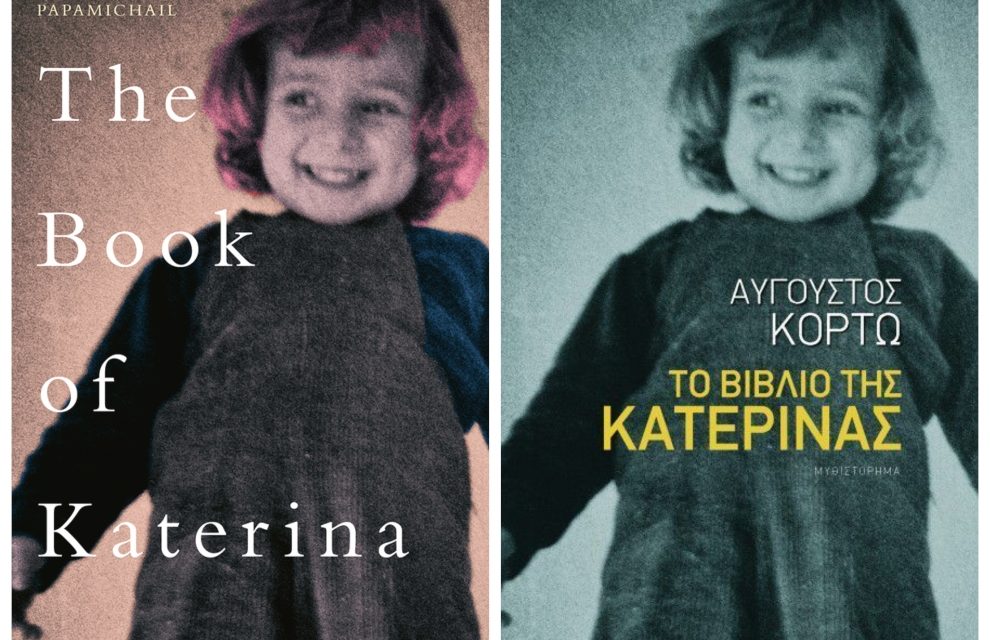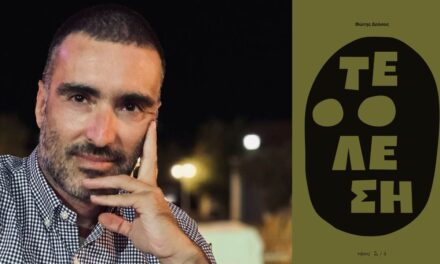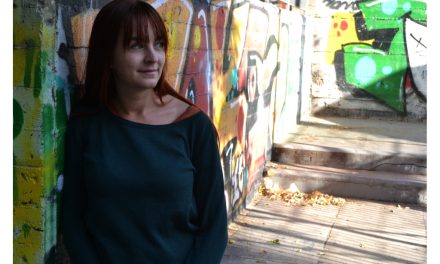At the start of June, Greek author Auguste Corteau hit bookshelves in the English-speaking world for the first time with The Book of Katerina, his personal, shocking and uproariously funny novel, a fictionalized account of his mother’s life-long torments and struggles with clinical depression and bipolar disorder. From the poverty of the early years through to affluence and aspirations of grandeur, Katerina drags her husband and son into the chaos of her life: sicknesses are hidden, siblings fight for love and attention while feckless husbands and unwanted children are riven through the family story.
While the book opens shockingly with her son’s discovery of her body following her suicide it is not a book that drags heavily. In the words of Jennifer Barclay, editor of the English edition, “it’s an unstoppably energetic and entertaining read as with earthy, no-holds-barred humour she observes the saga of her extended family’s ups and downs in the city of Thessaloniki over three generations”. As acclaimed British author Glen James Brown eloquently put it, the novel is “a gleefully sardonic novel about illness and family, and how we can never quite cure ourselves of either”.
The relationship between Katerina and her son Petros lies in the heart of the book. Katerina’s love for her only child is searing, all-consuming, and rapidly becomes the only thing protecting her from her own worsening mental state. But as the boy becomes a man troubled by his own inherited illnesses, this knowledge—and Katerina’s overbearing love—becomes too great a burden to bear. Katerina and Petros’ relationship exists at the nexus of illness and love. Each feeds the other, and it’s in the tragedy of their symbiotic bond that we find a clue to the reoccurring phrase with which Corteau introduces many of the book’s chapters: ‘The Horrors of Others’.
It was years after his mother’s death that the Greek author decided he had to write the book as a kind of love letter to his mother, recreating her as a fictional character. “I had to channel her, I suppose, or turn her into a ventriloquist’s dummy. I had to recall the exact timbre of her humour, the fieriness of her fury, her tenderness and her despair. It was indeed cathartic, but also painful – which is why I wrote the book in white heat, over a couple of frantic weeks”. Corteau isn’t sure what has made The Book of Katerina successful. Although it’s an attempt to understand her torments, what’s remarkable is that it isn’t bleak at all but written with earthy, no-holds-barred humour as she tells a family saga of ups and downs over three generations.
The Book of Katerina is published by Parthian Books as part of their literature in translation programme, with the support of the Creative Europe Programme of the European Union, the Books Council of Wales and the British Council. It was translated by Claire Papamichail, who noted that “the book is mostly about love – what happens when we don’t have it, or when we have too much of it, or when we don’t appreciate it, or when it’s not enough to solve the problems that arise”, also commenting that “it was very difficult for me, trying to find the right word, the right tone, not to betray Petros’s unique style, a mixture of sadness and subtle or not so subtle sarcasm”.
The novel has sold over 50,000 copies in Greece. It was also successfully adapted for the stage by Yorgos Nanouris and actress Lena Papaligoura, opening discussion about mental health issues in Greece. Alongside the print edition of the book, Parthian Books will also launch an audio book narrated by Greek actress Anna Savva, known as Lugaretzia in four series of The Durrells.

The author
A Greek novelist, short-story writer, screenwriter, children’s author, and translator, August Corteau, pen name of Petros Hatzopoulos, is the author of more than fourteen novels, among them Shameless Suicides (2005), The Obliteration of Nikos (2008), Sixteen (2010), and The Book of Katerina (2013), and the short story collection The Man Who Ate Too Much (2012). He also won the 2004 Greek National Book Award for Children’s Literature and the IBBY Prize for Best Children’s Novel. He has translated over 30 titles, including the work of Apollinaire, Faulkner, Salinger, Proulx, Updike and Banville.
The translator
Claire Papamichail was born in Athens, Greece, in 1963. She studied Sociology and has been working as a literary translator for more than thirty-five years, during which time she has translated over 300 works. Two of the books she translated, Bleak House by Charles Dickens and The Comedians by Graham Greene, were shortlisted for the National Translation Award and the English-to-Greek Translation Award respectively.
Athina Rossoglou
Read also: Reading Greece: Auguste Corteau – When the Writer Meets the Translator














